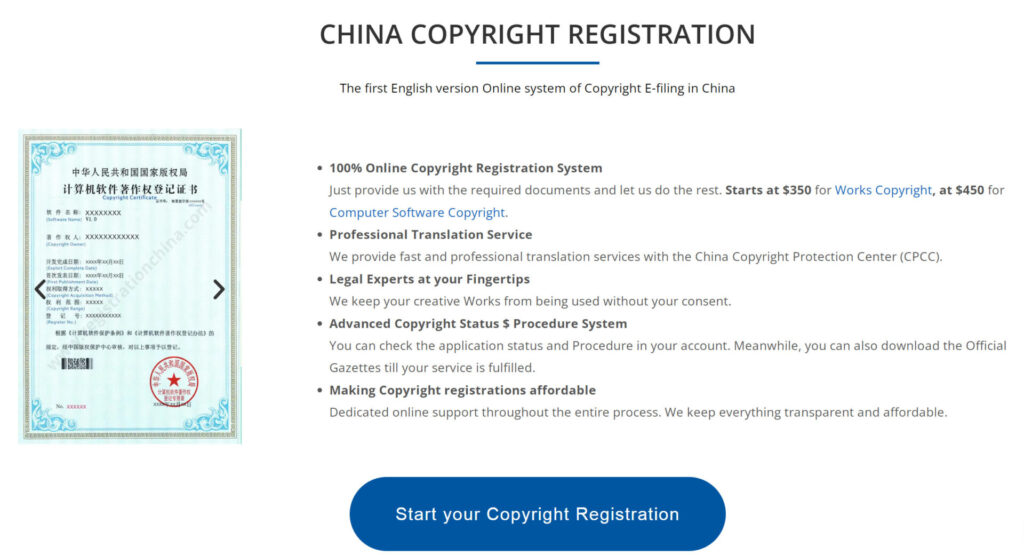Contents
Introduction:
As foreign enterprises and individuals, we now regard the Chinese market as the second largest in the world, with an immense customer base that provides substantial growth opportunities for businesses. However, entering the Chinese market is not easy. Apart from legal and cultural differences, we also face many technical and administrative challenges. For example, I want to publish a mobile app in mainland China but encounter many obstacles. Why can’t I publish smoothly? How can I protect my app if I haven’t applied for software copyright in China? For the foreigners, how to publish mobile apps in China? This article will provide the latest and most comprehensive solutions for how to publish mobile apps in China.
To Publish Mobile Apps in China: Laws and Regulations Related
Mainland China has strict laws and regulations for managing mobile apps, primarily aimed at ensuring network security, protecting user privacy, and maintaining public interest. The most important law is the Cybersecurity Law of China.
The Cybersecurity Law of China, implemented in 2017, sets out a series of obligations and responsibilities for network operators and users. For mobile app developers, the Cybersecurity Law requires them to ensure user data security and privacy protection in the design and operation of the app. This means developers need to take measures to prevent data leakage, theft, and misuse.
In addition to the Cybersecurity Law, several related laws and regulations govern the application and operation of mobile apps. For instance, the Data Security Law requires enterprises to ensure the security and legality of data processing, while the Personal Information Protection Law specifies the principles for collecting, using, and protecting personal information. Furthermore, the Regulations on Classified Protection of Information Security require information systems to undergo security classification protection.
These laws and regulations collectively form a comprehensive legal framework that ensures the mobile app market in mainland China operates in a secure and lawful environment. For foreign enterprises and individuals, understanding and complying with these laws and regulations is the first step to successfully applying for and operating a mobile app.
Publishing Mobile Apps in China: Core Issues for Foreigners
Foreigners publishing mobile apps in China often encounter many legal and administrative obstacles. How should foreign companies or individuals who have not yet set foot in China cope?
For foreign companies looking to operate mobile apps in China, establishing a Wholly Foreign-Owned Enterprise (WFOE) is the ideal approach. A WFOE allows the enterprise to fully control its business operations and better comply with Chinese laws and regulatory requirements. Through a WFOE, foreign companies can also manage their intellectual property (IP) independently, using the Chinese WFOE, with the parent company ideally being the shareholder. This is a crucial step in setting up a foreign-invested company.
Apart from WFOE, foreign companies can also choose to form a Joint Venture (JV) with local Chinese enterprises. A JV is established through joint investment by the foreign company and the Chinese company, with both parties managing and operating together. The advantage of this approach is that the Chinese partner can provide local market knowledge, resources, and operational experience, which is beneficial for the actual operation and promotion of the app. Additionally, through a JV, foreign companies can more smoothly enter the Chinese market, leveraging the connections and network of the Chinese shareholders to better address administrative and legal challenges. Some foreign companies or individuals may choose to license their IP to the Chinese partner, allowing the JV to operate the app in China. This approach not only protects intellectual property but also better adapts to the Chinese market and legal environment.
Protecting software copyright in China is very important. Applying for Computer Software Copyright in China ensures that the app’s intellectual property is legally protected. Foreign enterprises can choose to apply for copyright themselves or license it to a Chinese partner, thereby protecting intellectual property and complying with Chinese laws.
Overall, foreign enterprises have greater flexibility and convenience in applying for software copyright, registering companies, obtaining various licenses, and passing regulatory reviews. Some foreign companies choose to license their IP to Chinese partners, who then operate the app in China. This approach not only protects intellectual property but also better adapts to the Chinese market and legal environment.
The Application Process: To Publish a Mobile Apps in China
In mainland China, the operation of iPhone and Android applications involves some important differences, primarily in terms of app store review processes, operational requirements, and legal compliance. Understanding these differences is crucial for successfully launching and operating an app in mainland China.
iOS Applications
In mainland China, iOS applications are mainly distributed through Apple’s App Store. Apple’s review process is relatively stringent, and developers need to comply with Apple’s Developer Guidelines and relevant Chinese laws. Here are the key points of the application process:
- Developer Account: You need an Apple Developer account and choose the appropriate account type (individual, company, or enterprise).
- App Review: After submitting the app, Apple will review it to ensure compliance with Apple’s guidelines and Chinese laws. The review process checks the app’s functionality, content, and privacy policies.
- ICP Filing: If the app involves internet information services, it must undergo ICP (Internet Content Provider) filing, which is mandatory in mainland China.
Android Applications
In mainland China, Android applications are distributed through various Android app stores (such as Tencent MyApp, Huawei AppGallery, Xiaomi App Store, etc.). Each app store has its own review standards and processes. Here are the key points of the application process:
- Developer Account: You need to register a developer account in each app store, providing relevant corporate qualifications and information.
- App Review: After submitting the app, each app store will review it, checking the app’s functionality, content, security, and compliance.
- APK Signing: Ensure the app’s APK file is correctly signed, which is important for the app’s security and integrity.
- ICP Filing: Similar to iPhone applications, if the app involves internet information services, it must undergo ICP filing.
Apply for Mobile Apps in China: Copyright and App Release
Whether it’s an iPhone app or an Android app, applying for Computer Software Copyright is beneficial for protecting intellectual property. Having copyright can prevent unauthorized copying, distribution, or modification of the app. The order of applying for copyright and releasing the app is not strictly defined; developers can choose to apply for copyright first or release the app first, as both options are viable.
By understanding the differences between iPhone and Android in mainland China and their respective application processes, developers can better prepare and successfully launch and operate their apps. The following section will continue to explore other key issues and solutions.
Market Promotion and Localization Strategies When You Publish Mobile Apps in China
After successfully launching a mobile app in the Chinese market, effective market promotion and localization strategies are key to ensuring the app gains user acceptance. This can include the following aspects:
- Social Media Marketing: Utilize major Chinese social media platforms (such as WeChat, Weibo, Douyin) for marketing and publicity, increasing the app’s exposure and user engagement.
- Search Engine Optimization (SEO): Optimize the app’s content and keywords to improve its ranking on Chinese search engines (such as Baidu, 360 Search).
- Collaborative Promotion: Partner with well-known local enterprises, KOLs (Key Opinion Leaders), or influencers to expand the app’s visibility through their influence.
- Language and Cultural Adaptation: Ensure the app includes Simplified Chinese language options and adapt the design and content to suit Chinese users’ habits and cultural characteristics.
- Payment System Integration: Integrate common Chinese payment methods, such as WeChat Pay and Alipay, to facilitate user purchases and payments.
- Customer Support: Provide localized customer support services to ensure users receive timely and effective help when encountering issues.
- Data Privacy and Security: Comply with China’s Personal Information Protection Law and Data Security Law to ensure user data is secure and private.
- Content Review: Regularly review the app’s content to ensure it complies with Chinese laws and moral standards, avoiding removal or blocking due to non-compliance.
After successfully publishing and launching a mobile app, foreign enterprises need effective market promotion and localization strategies to ensure the app’s success in the Chinese market. This section will explore how to use Chinese social media platforms for marketing, optimize search engine rankings, collaborate with local enterprises and KOLs for promotion, and propose localization strategies to ensure the app’s language, payment systems, and customer support meet Chinese users’ needs. Additionally, it is essential to comply with Chinese laws and regulations to ensure data privacy and content compliance.
GWBMA Perfectly Solves the Problem
For foreign enterprises looking to apply for and operate mobile apps in China, GWBMA provides a one-stop solution. Through their professional services, clients can quickly and efficiently complete the application process, ensuring their app’s smooth operation in the Chinese market.
First, you can directly click “Place an Order” on the copyright online registration page to submit your application materials as quickly as possible. If you are not in China and do not have a certified Chinese mainland mobile number, you can contact us after placing your order.
Second, to ensure the security of our services and to prevent misuse by hackers, our technicians have implemented a review process for creating an account. However, if you wish to become a user quickly, we recommend that you first directly make a payment for your order on our website and opt to create an account during this process. New users who follow this procedure will be instantly approved by our system within 3 minutes.
Since applying for Computer Software Copyright requires verification through a Chinese mainland mobile phone number, this can be challenging for foreign enterprises not yet established in China. However, this is not a problem for GWBMA. Once you place an order and consult with us, GWBMA can leverage its expertise to help companies complete the mobile phone number verification and copyright application process.
Finally, GWBMA not only assists clients with the application and registration process but also ensures compliance with relevant Chinese laws. In partnership with Diligent & Integrity Law Firm, GWBMA can provide legal consultation and services to address any legal issues that arise during operation. GWBMA is committed to resolving all client issues as quickly as possible. Their experienced team can handle complex application processes and provide professional advice, ensuring that clients’ apps can be launched and operated smoothly.
Conclusion:
Through this comprehensive guide, GWBMA hopes to provide foreign enterprises and individuals with clear guidance and practical advice to achieve the fastest success in China’s AI and digital market. We believe that with effective preparation and professional support, foreign enterprises will see vast development prospects in the Chinese market.




